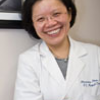(RxWiki News) Surgery is usually the first step in treating stomach (gastric) cancer. A number of studies have looked at whether or not chemotherapy after surgery helps these patients live longer. A new study offers new insights.
Adding chemotherapy after surgery helped patients with gastric cancer live longer than patients who had surgery only, a large multi-national study found.
This phase III trial involved patients in South Korea, China and Taiwan.
A gastric cancer specialist and dailyRx News Contributing Expert — Houston Methodist Hospital's Alexandria Phan, MD — cautions that these findings may not always apply to patients in Western countries.
"Discuss your full treatment plan with your oncology team."
Professor Sung Hoon Noh, a gastric surgeon from Yonsei University College of Medicine in South Korea, conducted this study — the phase III CLASSIC trial — which involved patients with advanced (stage II-IIIB) stomach cancer.
All 1,035 participants had undergone surgery to remove part of the stomach and surrounding lymph nodes. This surgery is known as D2 gastrectomy.
Lymph nodes appear throughout the body, including around the stomach, and help filter out foreign substances.
Study members were randomly assigned to be observed after surgery or receive chemotherapy after the surgery with a regimen known as XELOX, which is a combination of the medications capecitabine (brand name Xeloda) and oxaliplatin (Eloxatin).
The researchers found that the five-year survival rate for patients who received chemotherapy was 78 percent compared to 69 percent for patients who had only surgery.
The study also looked at three-year disease-free survival (DFS), during which patients had no signs or symptoms of disease.
Of those in the XELOX group, 26.7 percent had their gastric cancer return, developed new stomach tumors or died, compared to 39.4 percent of the patients treated with surgery only.
The five-year DFS was 68 percent in the XELOX group and 53 percent in the surgical group.
What these findings mean, according to the researchers, is that the chemotherapy helped to reduce the risk of death by 42 percent.
"Adjuvant XELOX after curative D2 gastrectomy improves overall survival compared with surgery alone and should be considered as a standard treatment option for patients with operable gastric cancer," the authors concluded.
Dr. Phan said these results are likely more applicable to Asian patients than people in Western countries. While evidence that chemotherapy helps improve survival in non-Western countries, these results haven't been seen in trials involving Western patients, she said.
"We who specialize in the treatment of gastric cancer recognize that this discordance is that gastric cancer is geographically different. Those with gastric cancer in the East may likely be earlier stages and undergo more aggressive curative surgery, than those in the West," said Dr. Phan.
"[The] take home message is that caution should be used in translating the positive results of CLASSIC study to all Western patients with gastric cancer," she said.
In the US, 21,600 Americans are expected to be diagnosed with gastric cancer this year. The disease will overwhelm nearly 11,000 adults in this country in 2013.
The five-year follow-up results of the CLASSIC trial were presented at the 15th European Society of Medical Oncology (ESMO) World Congress in Gastrointestinal Cancer.
All research is considered preliminary before it is published in a peer-reviewed journal.





